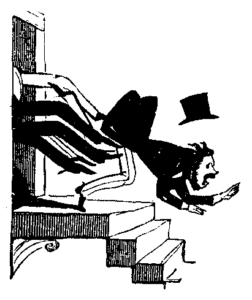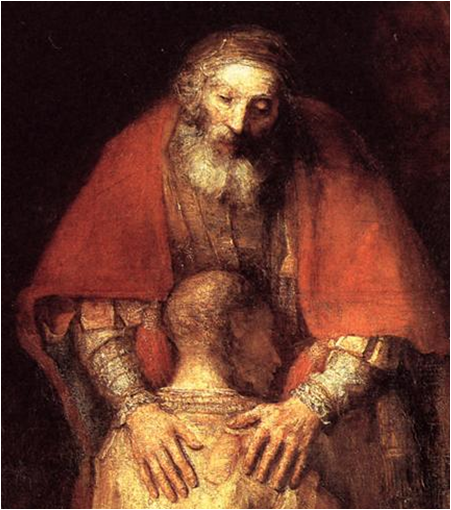All religions draw distinct lines between those who are in and those who are out. Actually, all communities have that determination-- passports, memberships, rights for those who are in and prisons, immigration laws and bouncers for those who are out. It is a distinctive of society. And there's a good reason for clear guidelines for those who are in and those who are out. If we have a community with a lot of children, we don't want people around who will attack or molest those children. We don't want to have in our midst those who are dangerous or who destroy our communities.
In religions we have other lines of who is in and who is out. Again, this isn't a bad thing. Not everyone is a Buddhist, a Muslim or a Christian, and if we didn't have definitions or determinations of who is actually a part of a religion or religious group, then the label is meaningless. Thus we have doctrinal statements, memberships, baptisms, rituals, requirements for leadership, disciplinary measures and catechisms. These are intended to let us know who belongs to our group and who doesn't.
In religions we have other lines of who is in and who is out. Again, this isn't a bad thing. Not everyone is a Buddhist, a Muslim or a Christian, and if we didn't have definitions or determinations of who is actually a part of a religion or religious group, then the label is meaningless. Thus we have doctrinal statements, memberships, baptisms, rituals, requirements for leadership, disciplinary measures and catechisms. These are intended to let us know who belongs to our group and who doesn't.
More often than not, however, we take a potentially good thing and we go way too far. Some groups make entrance into their groups very difficult, or pile on rules on their members, making discipline very easy. One has to believe a very narrow definition of faith, or one must enact a particular list of actions and rituals or one has a long list of moral requirements to obey. Worse, a member of a religious group might have to belong to a certain social class or ethnic group or have a certain education level. It seems that the older the religious group, the more narrow the membership requirements, because as time goes on, traditions increase, excluding more and more people.
Jesus had a different way of dealing with the lines of membership. He did have lines, mind you. Remember, he clearly rejected most Pharisees. And he had high standards for disciples. But one thing he did that was unique, different than any other religious leader, is that he sought members for his community from those who had already been rejected by society. In fact, those who were accepted by society he gave indications that they wouldn't make good members of the community he was forming. He had difficult words for the wealthy and financially secure. At times he completely rejected the religious establishment. But those who were on the outskirts of society, he sought.
Sometimes Jesus looked for those who were outcast by no fault of their own, like lepers or others who were chronically ill. Sometimes Jesus looked for people who were often misunderstood to be traitors or evil-doers but weren't, like tax collectors (or more accurately called toll-collectors). But Jesus also sought out as members those who had done terrible sins in their (even recent) past, such as prostitutes and other sinners who had done such horrible things to keep them from the mainstream of society. Jesus recognized that these who had made horrible mistakes recognized their need for change much better than the religious who had never done a big "screw up" their whole lives.
When Jesus accepted these outcast, he didn't bring them into the mainstream religious establishment, but brought them into his alternative community-- a nomadic commune. This meant that they didn't have to face the judgment of the religious that didn't have anything to do with the judgment of God. It meant that they could have an opportunity to work out their weaknesses in a training ground of encouragement and hope. It also means that they became a different kind of outcast: instead of being rejected for being a prostitute or a tax collector, they are rejected for being a part of a heretical group.
But when we look at Christianity, we find a very different kind of establishment. It IS the establishment. Those who go to most churches belong to the mainstream of society, the accepted, the financially secure (if not wealthy), the well-connected. The "salt of the earth" mean the core of society, the good people who keep communities running instead of Jesus' original intent, which was the poor, the mourning, the persecuted, the hated, those who don't have justice in their lives (Matthew 5:3-15). Our churches are not filled with the homeless, the mentally ill, the drunks, the drug addicts, the felons, the socially awkward, the powerless, as Jesus community would be. Instead, we have rejected the outcast, just like all the other religious establishment.
Perhaps we say, "Anyone is free to come to our church! We don't select those who come in." Well, we all do. We don't even mean to. And, again, this isn't necessarily a bad thing. If we speak English in our congregation, we weed out those who don't speak English. That is a cultural decision, perhaps one we didn't even know we were making. But a congregation to an immigrant population has to make a conscious decision as to what language or languages they use to reach out to their group. Every decision we make as a church is a cultural decision, and we are weeding out those who don't fit in our culture by making those decisions. If we have a large auditorium with pews, we are welcoming some group and we are rejecting another. If we use hymnals or choruses or pop songs, we are making cultural decisions that draw some in and reject others.

We need to make these decisions. We can't be a church for everyone, because that is a narrowing cultural decision as well. Jesus also made those cultural decisions. And the culture he developed was for the outcast and rejected. He chose not to meet at the temple, but in the fields. He chose to hold meetings at meals, some for the religious, some for the distinctly non-religious. He met in homes where the sick and the needy would be welcome.
Perhaps we need to re-think church growth strategy.
When Jesus accepted these outcast, he didn't bring them into the mainstream religious establishment, but brought them into his alternative community-- a nomadic commune. This meant that they didn't have to face the judgment of the religious that didn't have anything to do with the judgment of God. It meant that they could have an opportunity to work out their weaknesses in a training ground of encouragement and hope. It also means that they became a different kind of outcast: instead of being rejected for being a prostitute or a tax collector, they are rejected for being a part of a heretical group.
But when we look at Christianity, we find a very different kind of establishment. It IS the establishment. Those who go to most churches belong to the mainstream of society, the accepted, the financially secure (if not wealthy), the well-connected. The "salt of the earth" mean the core of society, the good people who keep communities running instead of Jesus' original intent, which was the poor, the mourning, the persecuted, the hated, those who don't have justice in their lives (Matthew 5:3-15). Our churches are not filled with the homeless, the mentally ill, the drunks, the drug addicts, the felons, the socially awkward, the powerless, as Jesus community would be. Instead, we have rejected the outcast, just like all the other religious establishment.
Perhaps we say, "Anyone is free to come to our church! We don't select those who come in." Well, we all do. We don't even mean to. And, again, this isn't necessarily a bad thing. If we speak English in our congregation, we weed out those who don't speak English. That is a cultural decision, perhaps one we didn't even know we were making. But a congregation to an immigrant population has to make a conscious decision as to what language or languages they use to reach out to their group. Every decision we make as a church is a cultural decision, and we are weeding out those who don't fit in our culture by making those decisions. If we have a large auditorium with pews, we are welcoming some group and we are rejecting another. If we use hymnals or choruses or pop songs, we are making cultural decisions that draw some in and reject others.

We need to make these decisions. We can't be a church for everyone, because that is a narrowing cultural decision as well. Jesus also made those cultural decisions. And the culture he developed was for the outcast and rejected. He chose not to meet at the temple, but in the fields. He chose to hold meetings at meals, some for the religious, some for the distinctly non-religious. He met in homes where the sick and the needy would be welcome.
Perhaps we need to re-think church growth strategy.







